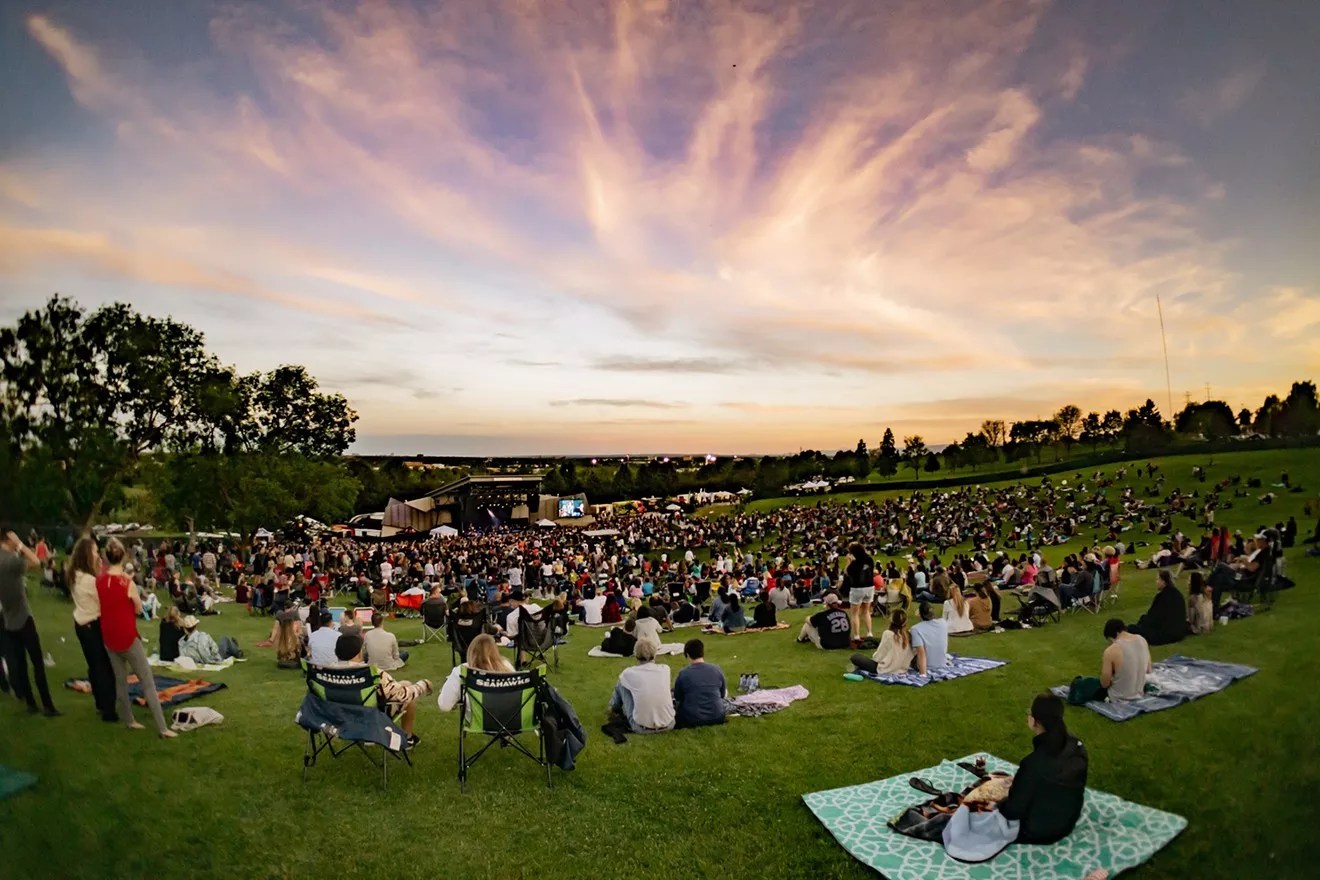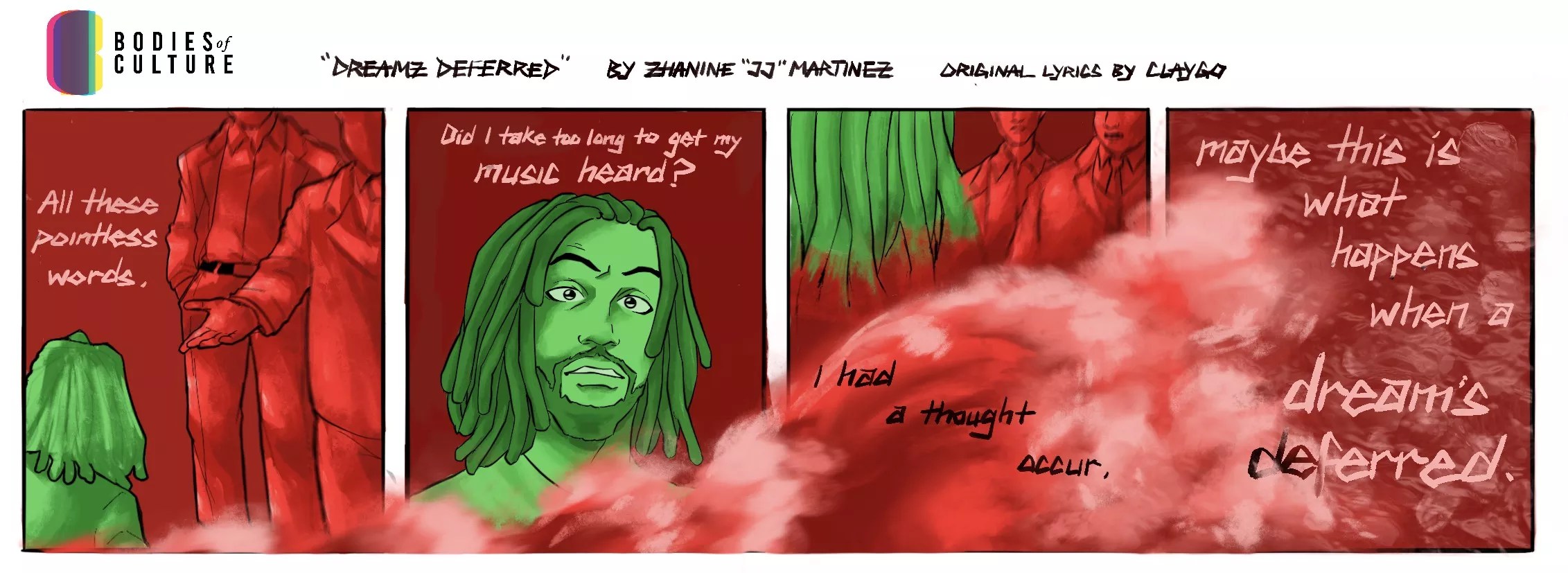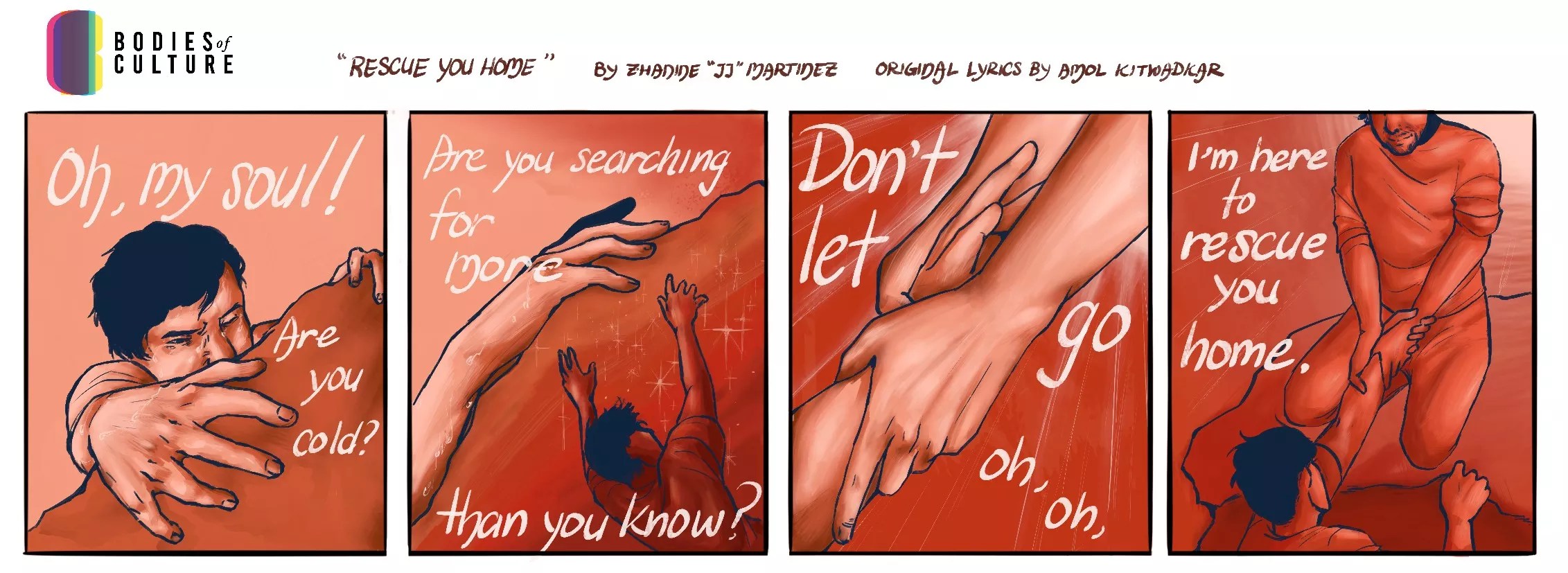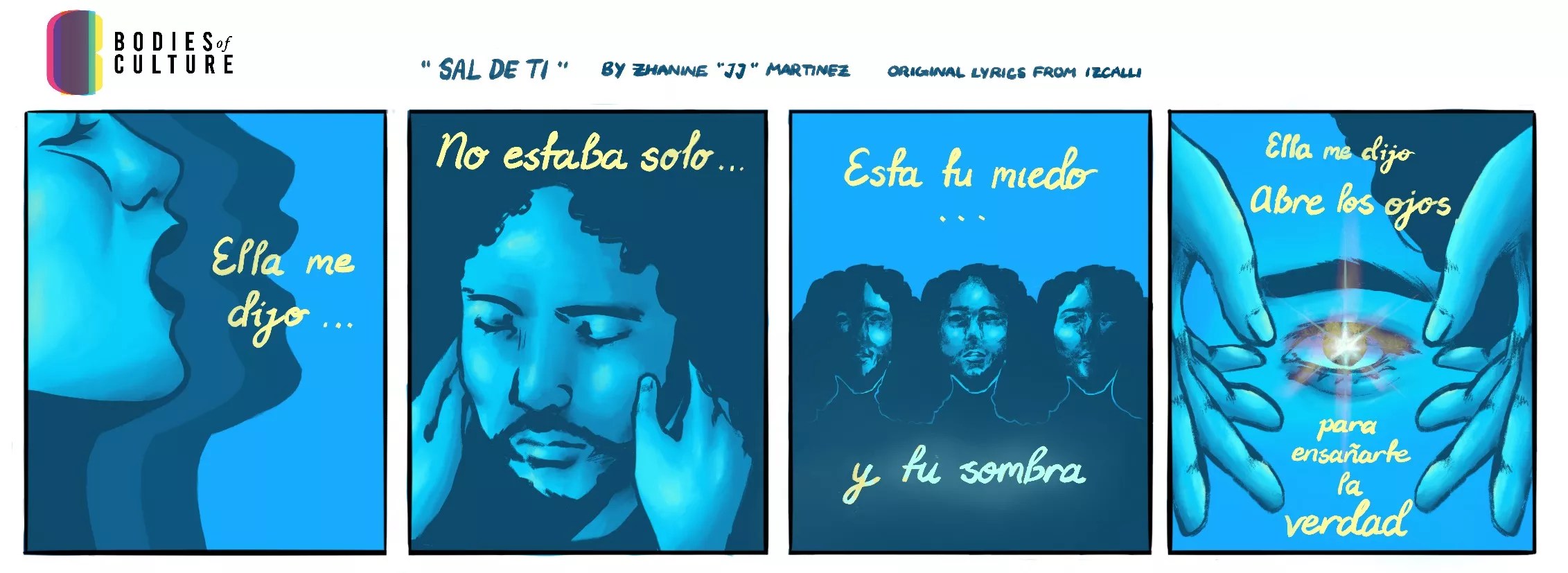
Joel Rekiel, @joelrekiel

Audio By Carbonatix
We all remember 2020: the worldwide pandemic, civil rights protests, solitude. But many, especially artists, also took advantage of that odd time to concentrate on their own passions and join in activist movements. Levitt Pavilion, the live-music nonprofit that opened in Ruby Hill Park six years ago, wanted to uplift such artists, and formed Bodies of Culture, a board comprising all BIPOC musicians from Denver, that year.
Bodies of Culture includes R&B singer-songwriter Kayla Marque, iZCALLi‘s Miguel Aviña, Clayton Goggins (aka Claygo), Megan Fong (Florea), hit-making singer Melissa Ivey, guitarist Amol Kitwadkar, violinist Ana Luna Uribe-Leteinturier, and R&B singer Zanib. Levitt “wanted to form a collective of diverse musicians that serve the community and really fill some gaps,” says Marque, “because I think during the pandemic, a lot of those things were coming more to the forefront as far as diversity and equity, and are there equitable practices set in place at these venues?”
Marque, who was born and raised in Denver, has been a professional musician for fourteen years; the scene “does need help” when it comes to diversity and equity in lineups, she says. And Bodies of Culture has taken the time to figure out how to address those issues. “You have a musician-led board, especially during busy gigs season – some people are on tours – so we’ve got a lot of moving pieces going on,” Marque notes. “But the main thing is to really address and tackle if things are just and equitable and, if not, how we can shift the landscape and our local music ecosystem to make them a little better.
“A lot of it has been thinking about: What is the impact that we want to have? What is our intention? And how do we align our intentions with our actions? So it’s been a slow-moving process, but I think it’s good, because I feel like now we’re at a place where we are able to transcend this vision to the public eye,” she says.
Bodies of Culture introduced itself at Levitt with a September 3 event called Sunday Sounds, which included sets from some of the boardmembers. Although Levitt is now heading into its off-season, the board hopes to make Sunday Sounds a series. “This is kind of our end-of-the-year gathering, where we really want to introduce Bodies of Culture to the community, and the boardmembers can talk a little bit about the work we’re doing,” Marque explains.
At that event, Bodies of Culture also announced Artists Survey, a program in which boardmembers will reach out to other artists in the community to “gauge where there are equity or diversity gaps to be filled,” Marque says. “This is really a platform for us to start surveying the BIPOC artists in our community, just to get some insight about what their experiences are like playing in the live-music industry in Denver. It’s really serving as a way for us to see what the people need, and how we can kind of bridge that gap between the artists and the venues.”
Marque and her cohorts are also encouraging other BIPOC artists in the music scene through a recurring open-mic night on the second Thursday of the month at the Mercury Cafe, with the next on Thursday, September 14. “Melissa Ivey typically hosts it. The September one is going to be hosted by Claygo,” says Marque. “We are there just to hold the space for other BIPOC musicians and artists to come up and share.”
The boardmembers are also making their ideas visual through a comics series. “I think we just individually wanted to introduce ourselves in a creative way and share our experience, either as being a musician in the Denver music ecosystem or just in general,” Marque says. “We also wanted to highlight some BIPOC artists, and so we put out an open call on our Instagram, and we got some really incredible submissions.”
In the comics, boardmembers share their lyrics in a four-panel piece illustrated by Vincent Patrick, Vaneen Martinez or Omar Silvas. Each story, however brief, is unique to the artist, Marque says. She used lyrics from an upcoming single called “Insecurious,” which discuss “not so much my experience as a musician in Denver, particularly. It was just kind of about who I am and what my mission is here on earth as an artist,” she notes.
Marque says the comics convey how “art is something we can really lean into, and it’s something that can connect us. It’s a language in itself, so we can tell these stories about ourselves in various ways and really capture someone’s attention. I’ve been picking up Westword for, I don’t know, fourteen years, you know, and I think having something like this in there now is really going to grab people’s attention.”

“Cosmos” Musician: Kayla Marque. Artist: Omar Silva.
Courtesy Levitt Pavilion

“Audio Hug.” Musician: Amol Kitwadkar. Artist: Omar Silva.
Courtesy Levitt Pavilion

“This Isn’t Even My Final Form.” Musician: Ana Luna Uribe-Leteinturier. Artist: Omar Silva.
Courtesy Levitt Pavilion

“Dreamz Deferred.” Lyrics by Claygo. Art by Zhanine JJ Martinez.
Courtesy Levitt Pavilion

“Rescue You Home.” Lyrics by Amol Kitwadkar. Art by Zhanine JJ Martinez.
Courtesy Levitt Pavilion

“Grace.” Lyrics by Melissa Ivey. Art by Omar Silva.
Courtesy Levitt Pavilion

“Sal de Ti.” Lyrics by Miguel Avina of Izcalli. Art by Zhanine JJ Martinez.
Courtesy Levitt Pavilion